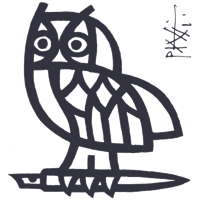Parliaments and Parliamentarianism in Europe
Parliamentarianism and parliamentarisation are the results of transnational and interdependent political transfer processes. The KGParl research focus »Parliaments and Parliamentarianism in Europe« takes this into account. It aims at expanding previous research studies of the KGParl on German parliamentarianism by including a European comparative perspective. Related to this is a topical focus on the development of parliamentary culture(s) in Europe. Comparative systematic studies are intended to analyse symbols, rituals and forms of communication of European parliaments and thus explore the potential of symbolic communication. In doing so, the research focus explicitly draws on anthropological and cultural historical questions.
A European subject with comparative perspective will only be meaningful when carried out in cooperation with European research institutes. This can be best achieved by means of international academic conferences. Thus, the KGParl has initiated the conference series »Parlamentarische Kulturen in Europa im historischen Vergleich« (»Parliamentary Cultures in Europe from a Comparative Historical Perspective«). It focuses on topics that, through the lens of comparison, are suitable for the discussion of basic issues: »Das Parlament als Kommunikationsraum« (»Parliament as Communication Space«), »Lebenswelten von Abgeordneten in Europa« (»Lifeworlds of Parliamentarians in Europe«), »Das ideale Parlament« (»Ideal Parliament«) as well as »Antiparlamentarismus und Parlamentarismuskritik« (»Anti-Parliamentarianism and Criticism of Parliamentarianism«).
Die ausgehandelten Revolutionen. Politische Kommunikation in Parlament und Öffentlichkeit beim Umbruch zur Demokratie in Spanien und Polen / Negotiated Revolutions. Political Communication in Parliament and the Public Sphere during the Transition to Democracy in Spain and Poland
The book focuses on political communication in parliament and the public sphere in Spain and Poland. Similarly to Spain during the Transición after Franco’s death in 1975, Poland’s path to democracy in 1989 was politically threatened. What was the role of political communication at the end of the dictatorship – at a time when the old system had still not quite disappeared and the new one was not yet fully established? How did the political actors communicate, argue and fight when they realized that the transition to democracy could only achieved together?
The transnational perspective of the volume reveals unexpected analogies, connections and interdependencies between the democratization processes in Spain and Poland.
The research project builds on the assumption that similarities inherent to parliamentarianism can be identified even beyond constitutional and political historical dimensions, and that those similarities can ultimately explain political and cultural processes. The assumption of a common parliamentary tradition, on the other hand, faces challenges and questions. In other words, the project must take into account differences as well as their causes and repercussions. Particularly noteworthy in this respect is the frequently suggested exemplary function of the English Parliament as the »mother of parliaments« as well as French parliamentarianism as the cradle of the separation of powers.
In this context, the KGParl is particularly committed not only to focus on the better researched Western European parliaments but also to include those of the nation states in Eastern Central Europe and explore their history as multiethnic nations of the nineteenth century. After all, Hungary – to name but one example – can also look back on a century-old parliamentary tradition – albeit going a different way than the UK in the modern era.
In future, the project will also include the comparative history of parties, the history of elections and election campaigns as well as the European parliament with its specific structure and communication situation.
Current Projects
Tobias Kaiser »Praxisfragen und Grundsatzdikussionen im Europäischen Parlament. Eine Kommunikationsgeschichte der CD/EVP-Fraktion von der Gründung 1952/1953 bis zur Professionalisierung mit und nach der Direktwahl 1979« (»Debates on Practical Issues and Principles in the European Parliament. A Communication History of the CD/EVP Parliamentary Group from its Foundation in 1952/53 to its Professionalisation with and after the Direct Election in 1979«)
Andreas Schulz: »Theater der Illusionen. Parlamentarismuskritik in Deutschland und Frankreich« (»Theatre of Illusions. Critique of Parliamentarianism in Germany and France)
Tobias Kaiser: »Gewalt und Parlament in Europa – Schutz eines ›heiligen Ortes‹. Eine international vergleichende Studie zur ›Parlamentarischen Polizeigewalt‹« (»Violence and Parliament in Europe – Protecting a ›Holy Place‹. An International Comparative Study on Parliamentary Police Force«)
Contact: Tobias Kaiser


